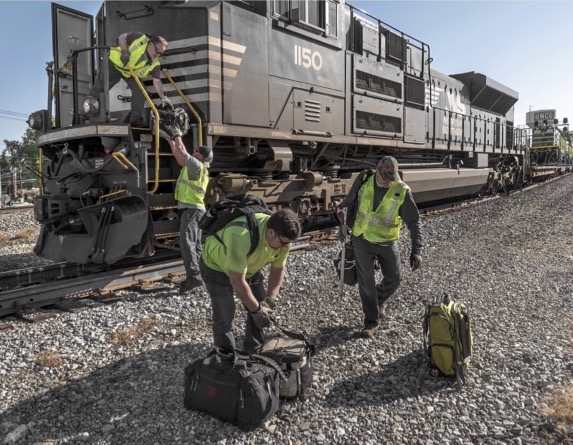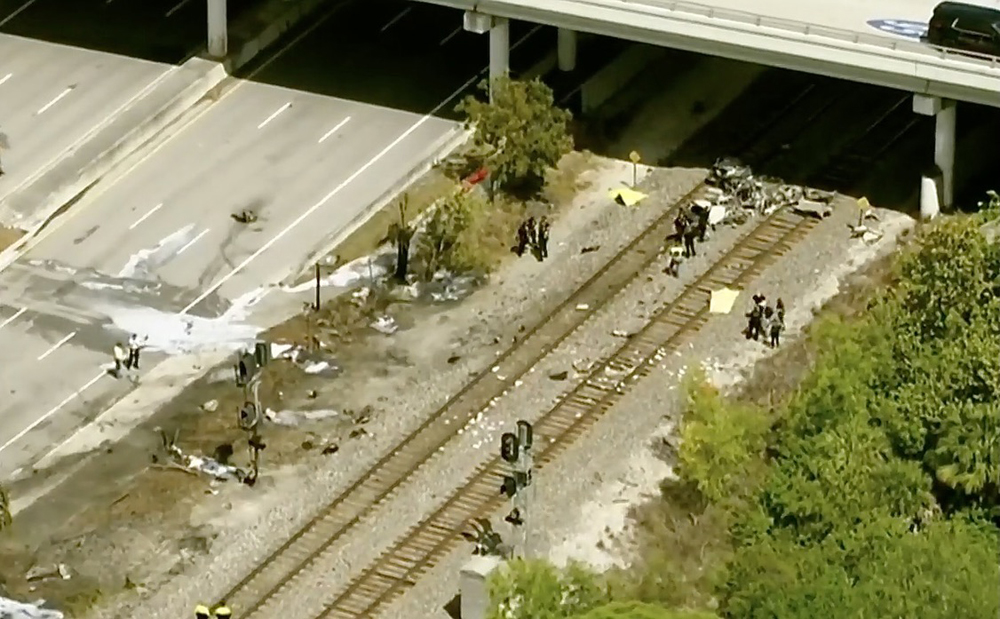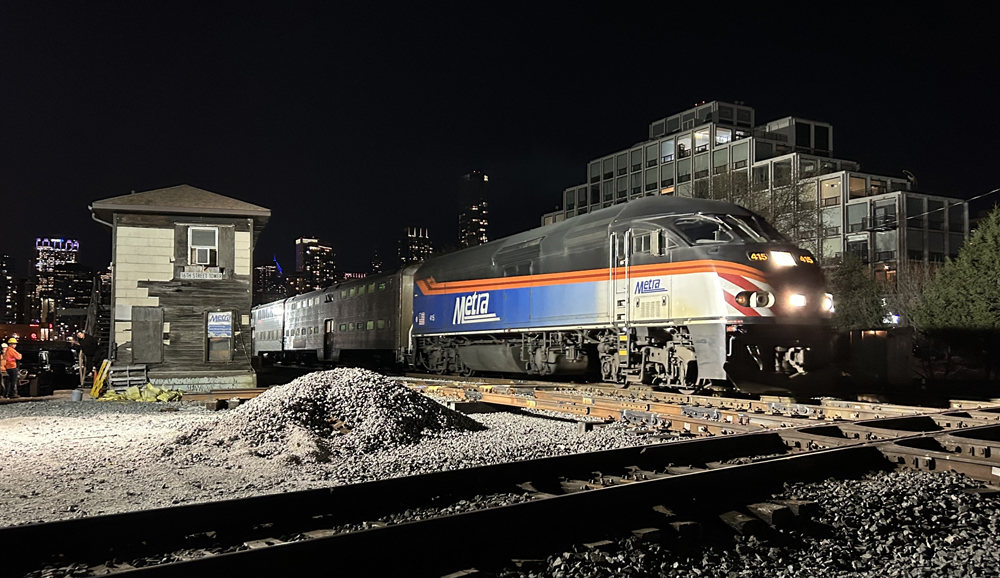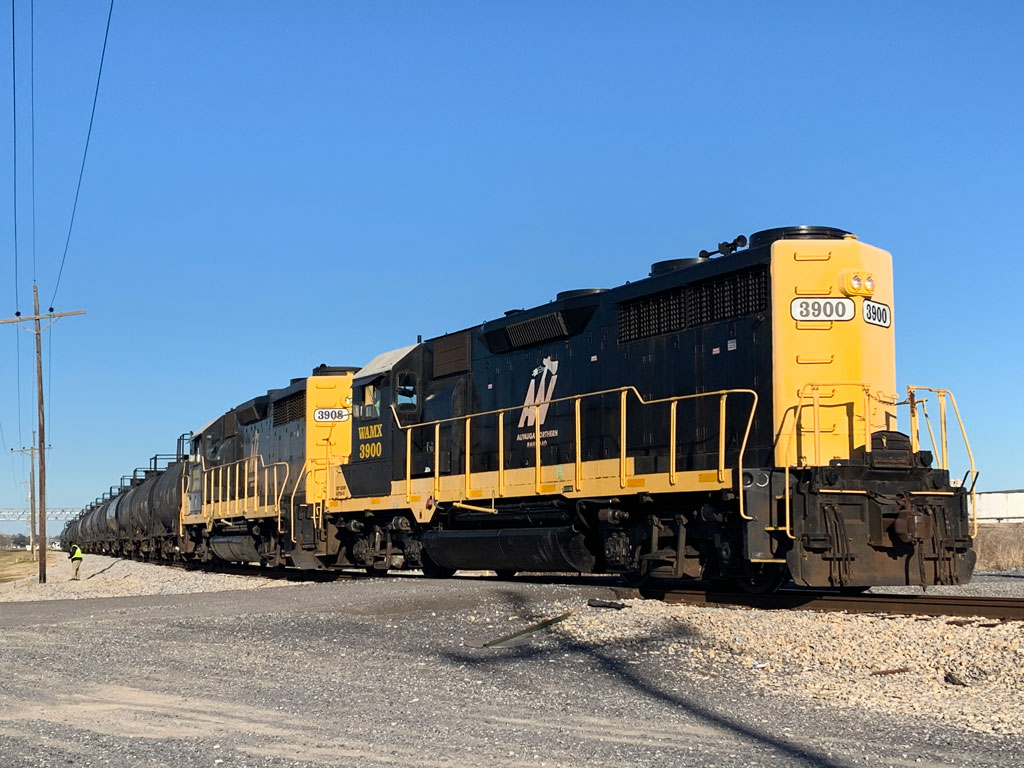
Norfolk Southern, the Brotherhood of Locomotive Engineers and Trainmen, and the SMART-TD union will participate in the Federal Railroad Administration’s Confidential Close Call Reporting system, or C3RS, the railroad and labor unions said in a joint statement today.
“NS is proud to partner with our labor leaders and FRA to make another industry-leading advancement in safety,” NS CEO Alan Shaw said. “We are committed to setting the gold standard for rail safety, and we are proud to be the first Class I railroad to deliver on our promise to co-develop and launch a C3RS program.”
The Class I railroads pledged to join the C3RS program as part of a safety push that followed the disastrous Feb. 3, 2023, NS derailment in East Palestine, Ohio.
Under the one-year C3RS pilot, covered NS employees can report safety concerns with the certainty that such reports will not result in discipline, the railroad and unions say. NASA will remove identifying data and provide it for review by a joint committee of NS and labor representatives, who, with FRA’s guidance, will identify and implement corrective actions to improve safety.
“It should be the goal of everyone who works in the railroad industry to continually improve safety,” said BLET National President Eddie Hall. “Providing a confidential platform to report unsafe practices allows us to harness the power of every worker’s voice. NS and its CEO, Alan Shaw, should be applauded for taking this step. I hope that this will become a model for other Class I freight railroads.”
Added Hall, “I also would like to commend the leadership shown by General Chairmen Scott Bunten, Dewayne Dehart, and Jerry Sturdivant who helped make this happen by negotiating on behalf of our NS members.”
“This is huge step forward for the safety of our brothers and sisters at Norfolk Southern,” said SMART-TD President Jeremy Ferguson. “SMART-TD has been a long-time champion of C3RS, and this new program will allow our members to speak up when they see unsafe conditions without fear of negative repercussions. I would like to thank General Chairmen James Ball, Joe Borders, Tommy Gholson, David Phillips, and Dan Weir for their unwavering commitment to bringing C3RS to their members.”
Key goals of the C3RS pilot program include:
- Collecting currently unreported unsafe practices, behaviors, or situations.
- Identifying and implementing corrective actions.
- Sharing general trends and statistics to enhance railroad safety.
Throughout the program, FRA will provide oversight, guidance, and support to the parties as they analyze safety data and work to effect positive change.
“FRA’s C3RS program provides a useful industry-wide platform to gather valuable insights from frontline railroad workers when they experience close calls – helping to uncover risks and providing opportunities for railroads and their workers to take actions to prevent serious safety incidents,” FRA Administrator Amit Bose said. “We appreciate BLET, NS, and SMART-TD’s collaboration on this important partnership, and FRA remains committed to further expanding participation in the C3RS program to advance safety.”
Shortly after the joint news release was issued, BLET First Vice President Mark Wallace released a statement critical of the freight railroads.
“BLET members who work in the cabs of Norfolk Southern’s locomotives welcome this agreement. Our union has had years of experience with close call reporting programs at Amtrak and other passenger railroads, along with a handful of smaller freight carriers, but only 23 out of the nation’s 800 railroads have adopted C3RS,” Wallace said. “For far too long the large railroads and their trade association, the Association of American Railroads, have paid lip service to safety. The AAR prefers to spend millions of dollars on television commercials bragging about safety while backtracking on safety agreements. Rather than adopt programs like C3RS, that enables an organization to continually improve and take corrective actions, the Class I railroads engaged and continue to engage in finger pointing.”
The AAR said railroads remain committed to the program.
“Railroads have been clear about their commitment to enhance and join C3RS. Since making that commitment, AAR and its member railroads collectively and individually have engaged in good faith conversations with the Administration and rail labor about strengthening the program,” spokeswoman Jessica Kahanek says. “We defer to our member companies about their own reporting programs and discussions surrounding the C3RS program.”
AAR says that employee confidential reporting is an important tool to help prevent accidents. All Class I railroads have longstanding programs that provide a protected avenue for reporting close calls or other incidents without fear of negative consequences, AAR says.
The railroads remain committed to finding a Confidential Close Call Reporting path that prioritizes the safety, confidentiality, transparency, and accountability necessary for the program to operate properly, AAR says. The stumbling block that remains is how railroads handle so-called known events – or when an employer is aware of a safety violation but an employee reports the event through C3RS anyway to avoid any potential discipline.
An example of this, AAR says, would be positive train control systems enforcing speed restrictions. A railroad would be notified immediately through the PTC system, but an employee could potentially utilize the Confidential Close Call system, as currently structured, to avoid discipline, AAR says.
Note: Updated at 1:28 p.m. Central with comment from AAR.
Note: Updated at 12:27 p.m. Central with additional comment from BLET.














I suggest you change the title of this article to “Norfolk Southern becomes first class I •freight• carrier to join the FRA C3RS.”
Amtrak is also a Class I carrier, as they generate enough annual revenue, and they have been using the C3RS system since their unions adopted it from 2010-2012.
If a railroad is notified immediately when a violation occurs the employee involved would be known to the company.
How could a report through C3RS with all identifying data removed be used to avoid discipline?